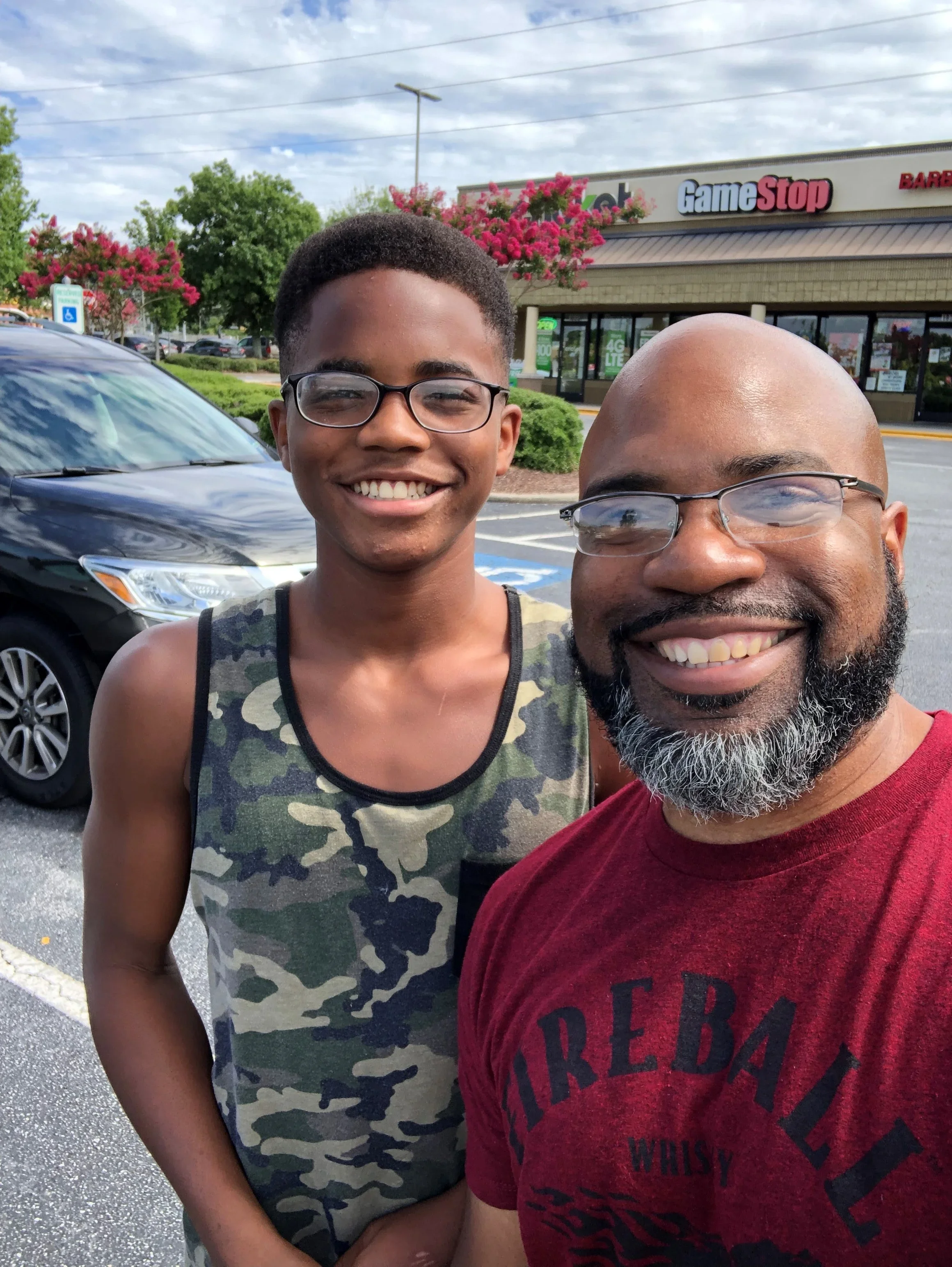Jarrad Turner
At MVP We Are One
Since his discharge from the army after ten years of service, Jarrad is still giving back to his ‘comrades in arms’ as the Director of Warrior Engagement with the Warrior Alliance and ‘spreading the word’ to prospective MVP members about the Atlanta chapter. After a chance encounter with director John Sterling and Jeremy Tindell, he attended the grand opening in December 2018 and has been attending meetings twice a month ever since.
He grew up in Long Island, New York. His brothers played sports and were highly competitive. Jarrad played lacrosse and wrestled in high school. He decided on Alabama State University since both of his parents came from a small Alabama town. His mother graduated from Adelphi University, earning a BA and MA in business management. His father worked and retired from the aerospace industry.
He earned a BS degree in business management and worked at the Southern Poverty Law Center for two years. At 26 years old, he began talking to co-workers about joining the military. “I saw the sacrifices others had made to our country and asked myself: ‘what about me?’ I always had an interest in medicine, and I wanted to be a medic.”
His first deployment was to Iraq in support of Operation Iraq Freedom where he participated in the initial push after 9/11. “I spend 14 months in Iraq, and it changed me—not physically, but the onset of PTS was a normal reaction to combat.” While in Iraq during his second deployment he was injured in an attack. As a result of his injuries, he was medically evacuated to Landstuhl, Germany.
“I was first was sent to Landstuhl, Germany, for surgery on my right shoulder; then to Fort Gordon for two surgeries on my elbow. Since then, I’ve had three shoulder and two dental surgeries as a result of my injuries.”
The doctors only wanted to treat my visible injuries, but I was also dealing with Traumatic Brain Injury, Post Traumatic Stress Disorder, double vision, vertigo, light sensitivity, migraine headaches, and neuropathy. I had no feeling in my right hand, and I had to work through countless hours of physical therapy & occupational therapy just to regain the dexterity to use my right hand. I was mad and frustrated with what was wrong with me. I felt like I was less than a man; how could I be so weak. I could not even hold a cup of coffee in my right hand.”
After 14 months of treatment and therapy, he was medically retired and returned to Fort Sam Houston, Texas. He had to come to grips that something was incredibly wrong. He was struggling with migraine headaches, double vision, light sensitivity, vertigo, anger, anddepression. “I knew something was wrong with me, but I was not sure what to do. I didn’t know who to talk to, nor who I could trust.” He was medically retired in 2010.
So at the age of 36, although he wanted to continue in the medical field as an Army Health Care Specialist/Combat Medic, most of his medical skills did not transfer to civilian medicine. He was told time and time again by employers ‘Thank you for your service,’ but unfortunately, they didn’t understand how to transfer his military skills to the civilian world.
He was married for several years and is now divorced. He is a proud father of three beautiful children. His oldest daughter is 22 and is a graduate of the University of Alabama in Birmingham. His son is 14 years old and plays lacrosse, basketball and is on the local swim team. His youngest is 12, and she also plays lacrosse, swims and she is a cheerleader.
Since being medically retired in 2010, he has served as a veteran advocate in the greater Atlanta area. He has worked as a National Service officer for Disabled American Veterans, Senior National Service Officer for the Wounded Warrior Project & he is currently the Director of Warrior Engagement for The Warrior Alliance in Atlanta, Georgia. One of his duties is serving as the lead for Operation Deep Dive. Operation Deep Dive is a four-year suicide prevention study in conjunction with the University of Alabama and Bristol Myers Squib.
“The public has the perception that veterans are taken care of, but the VA is a broken system: they respond to veterans’ retroactively instead of proactively.”
“MVP has helped me get back with the camaraderie and brotherhood I appreciated in the military. Even though I wake up every morning with something hurting, I know on my worst day I won’t run away from it, and with my MVP brothers and sisters, we’ll push through. In Iraq, I couldn’t run away, and even though as a civilian, I’ve often felt alienated, at MVP, we are one.”

